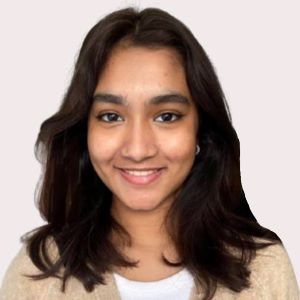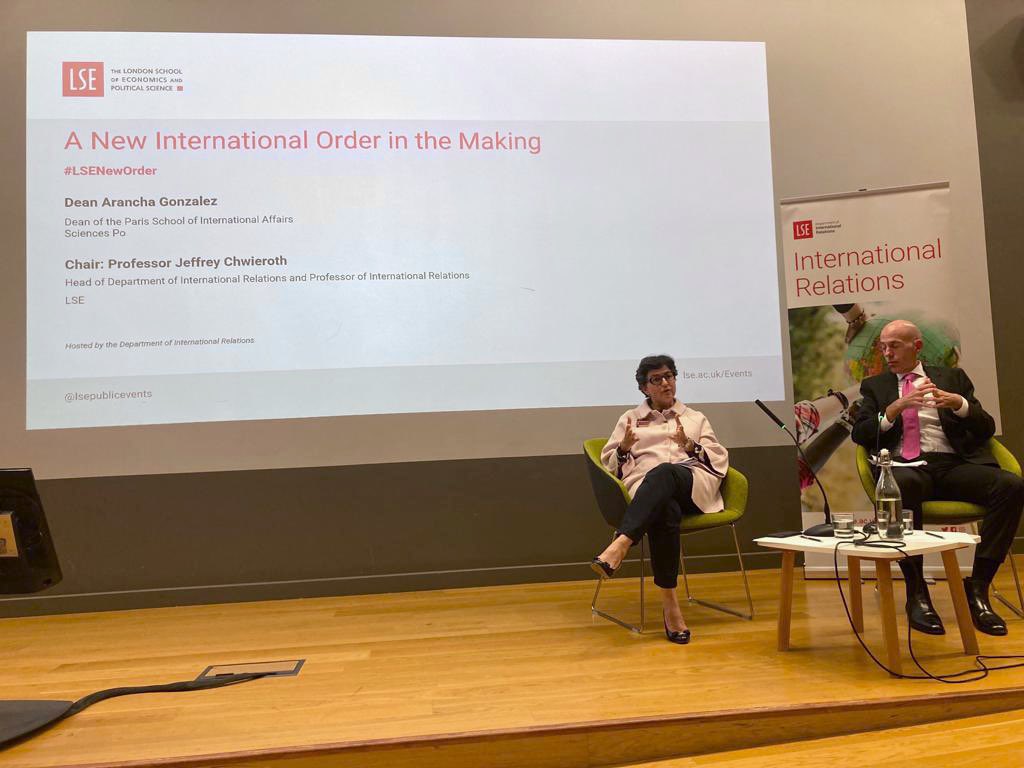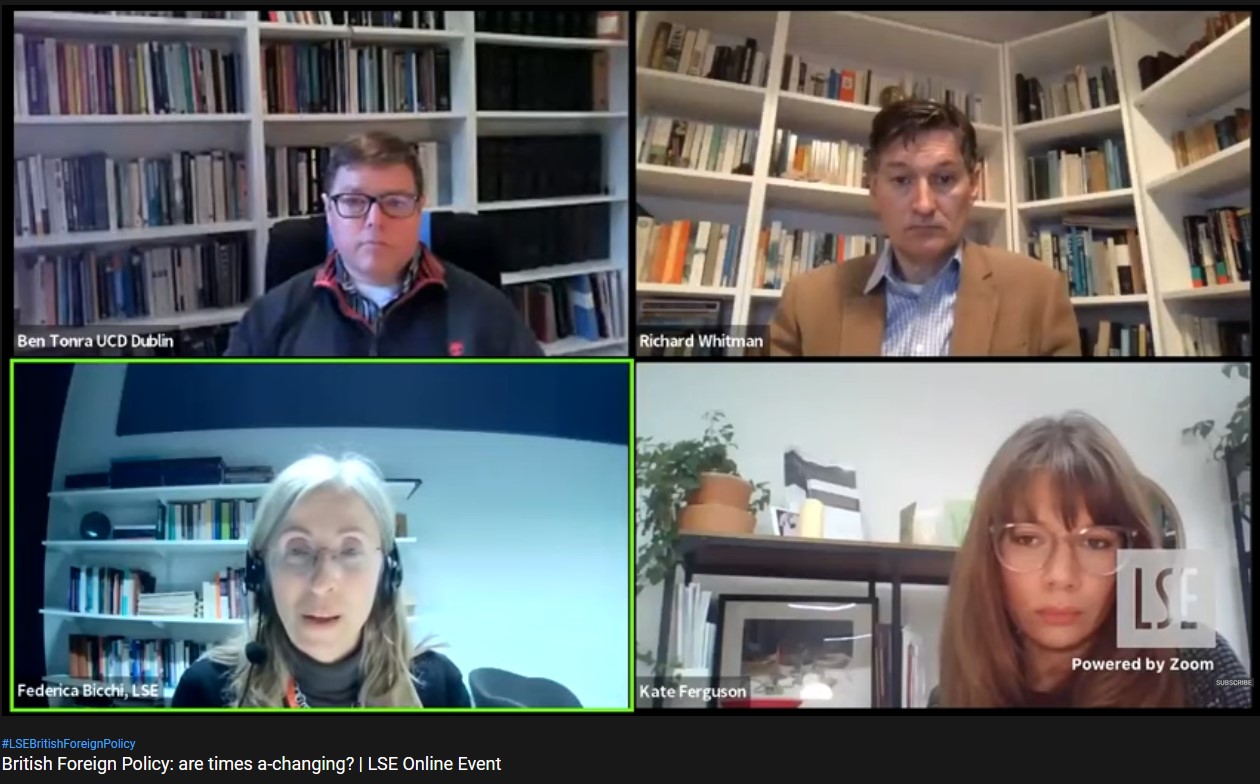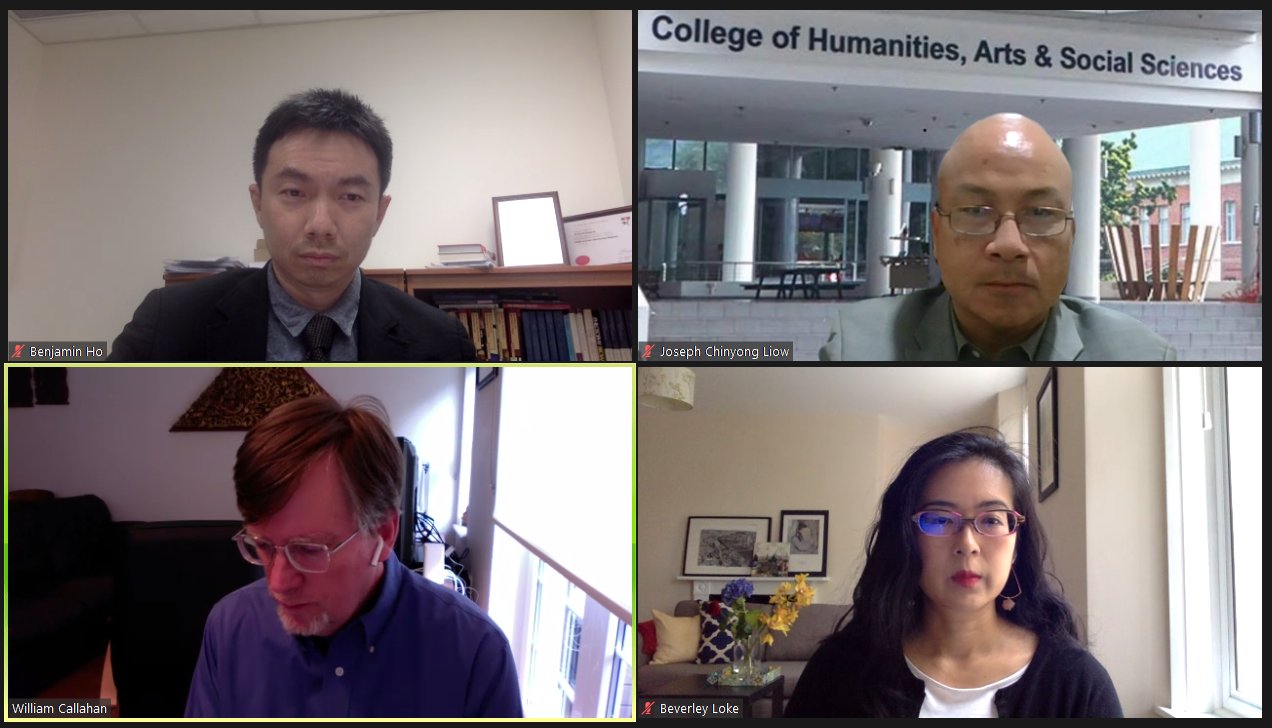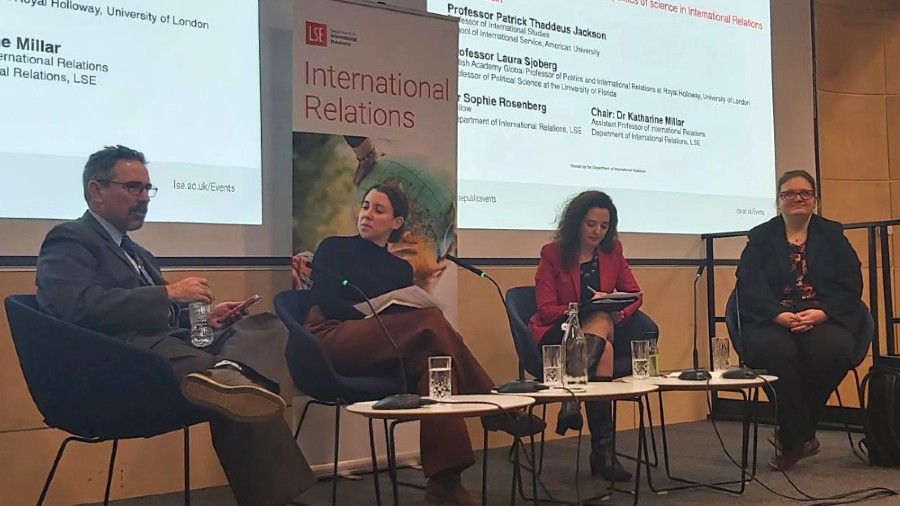On Wednesday 18 January 2023, a panel consisting of Cemil Aydin, Professor at the University of North Carolina at Chapel Hill, Menderes Çınar, Professor of Political Science in the Department of Political Science and International Relations, Başkent University, Ankara, Ayşe Zarakol, Professor of International Relations at the University of Cambridge, also Politics Fellow at Emmanuel College, Cambridge, and chaired by Dr Katerina Dalacoura, Associate Professor in the Department of International Relations, LSE, came together to explore the historical conditions and inter-connected global power structures which brought the the Muslim World into being. They also explored the politics surrounding its continuing survival at the current juncture of a global IR which stokes the fires of essentialist collective myths.
Find out more about the event and speakers
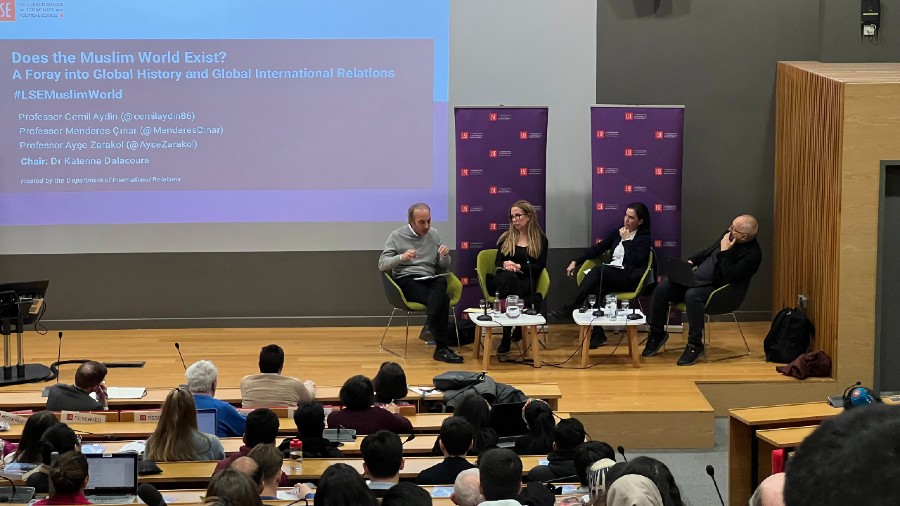
L to R: Professor Menderes Çınar, Professor Ayşe Zarakol, Dr Katerina Dalacoura (Chair), Professor Cemil Aydin
Professor Zarakol attributed the origin of the term “Muslim world” to an epistemological flaw of scholars who likened Christendom to Islam despite significant differences between both sets of societies. Muslim-majority states had diverse political structures and systems and were never monolithic. .
Muslim intellectuals found political coalitions necessary to resist claims of inferiority that would deny them equality.
Along this axis, Muslims were continually essentialised as a racially inferior people in the 1870-80s by Europeans, and Professor Aydin credits the spread of Islamic decolonisation with the formation of the Muslim world. Muslim intellectuals found political coalitions necessary to resist claims of inferiority that would deny them equality. In the pursuit of reclaiming their identities, unity seemed the best way forward.
In the contemporary period, the idea of the Muslim World is kept alive by leaders who politically appropriate it. Professor Çinar discussed how Turkey holds on to the Ottoman Empire to replace a waning European ambition with an Islamic disposition. The AKP uses the idea of the Muslim world to restore a Muslim identity for Turkey domestically and internationally.
The AKP uses the idea of the Muslim world to restore a Muslim identity for Turkey domestically and internationally.
Like any other man-made concept, the Muslim World exists in a permanent state of flux. When asked why we should question if the Muslim world exists, Professor Zarakol responded with a reminder of our duty as social scientists to question accepted truths if we hope for progress. Dr Dalacoura’s response on how the Muslim World started from a historically contingent idea with an anti-imperialist notion, to a political tool, further highlights the importance of understanding its history and the evolving nature in academia to avoid reducing the humanity of the Muslim World to stereotypes.
Like any other man-made concept, the Muslim World exists in a permanent state of flux.
Event report by Tasneem Begum Mustapha, BSc Politics and International Relations
